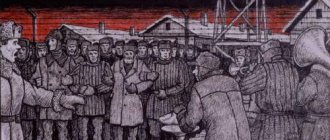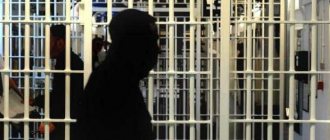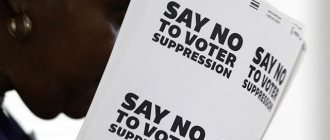Article 280. Public calls for extremist activities
Information about the ECHR Ruling of 05/09/2018 in the case “Stomakhin v. Russian Federation” (complaint No. 52273/07) The applicant complained that he had been found guilty of committing a crime under Article 280 of the Criminal Code of the Russian Federation (public calls for extremist activities ) for publishing a number of articles about events in the Chechen Republic in a newsletter, violated his right to freedom of expression and peaceful assembly, as guaranteed by Articles 10 and 11 of the Convention.
Appeal ruling of the Supreme Court of the Russian Federation dated June 15, 2017 N 201-APU17-19
By the verdict of the Moscow District Military Court dated February 20, 2017, M. was convicted of a set of crimes under Part 1 of Art. 205.1 and part 1 of Art. 280 of the Criminal Code of the Russian Federation, by partial addition of sentences to imprisonment for a term of eight years in a general regime correctional colony.
Appeal ruling of the Supreme Court of the Russian Federation dated 06.06.2017 N 203-APU17-13
By the verdict of the Volga Garrison Military Court dated March 24, 2017, I. was convicted of committing crimes under Part 1 of Art. 205.1 of the Criminal Code of the Russian Federation, Part 1, Art. 205.2 of the Criminal Code of the Russian Federation, Part 2 of Art. 280 of the Criminal Code of the Russian Federation, to imprisonment for a term of seven years to be served in a special regime correctional colony.
Appeal ruling of the Judicial Collegium for Military Personnel Cases of the Supreme Court of the Russian Federation dated September 13, 2018 N 205-APU18-23
sentenced to imprisonment under Part 1 of Art. 205.2 of the Criminal Code of the Russian Federation (as amended by Federal Law No. 420-FZ of December 7, 2011) for a period of 2 years; according to Part 2 of Art. 280 of the Criminal Code of the Russian Federation for a period of 3 years using Art. of the Criminal Code of the Russian Federation without deprivation of the right to hold certain positions or engage in certain activities.
Appeal ruling of the Judicial Collegium for Military Personnel Cases of the Supreme Court of the Russian Federation dated May 28, 2019 N 208-APU19-3
Levitsky Yaroslav Vasilyevich, ... convicted by the verdict of the Central District Court of Prokopyevsk, Kemerovo Region dated March 5, 2021 under Art. 138.1 of the Criminal Code of the Russian Federation to imprisonment for a term of 1 year suspended with a probationary period of 1 year; by the verdict of the Zavodsky District Court of Kemerovo, Kemerovo Region dated September 11, 2018 under Part 2 of Art. 280 of the Criminal Code of the Russian Federation to a fine of 10,000 rubles (the fine was paid on November 11, 2021),
Appeal ruling of the Judicial Collegium for Military Personnel Cases of the Supreme Court of the Russian Federation dated June 18, 2019 N 205-APU19-12
convicted under Part 1 of Art. 205.2 of the Criminal Code of the Russian Federation (as amended by Federal Law dated December 7, 2011 N 420-FZ) to imprisonment for a term of 2 years with deprivation, on the basis of Part 3 of Art. of the Criminal Code of the Russian Federation, the right to engage in activities related to the administration of sites using electronic or information and telecommunication networks, including the Internet, for a period of 2 years, and under Part 2 of Art. 280 of the Criminal Code of the Russian Federation to imprisonment for a period of 1 year 6 months with deprivation of the right to engage in activities related to the administration of sites of electronic or information and telecommunication networks, including the Internet, for a period of 2 years.
Appeal ruling of the Judicial Collegium for Military Personnel Cases of the Supreme Court of the Russian Federation dated September 24, 2019 N 203-APU19-14
According to paragraph 2 of Art. 24 of the Federal Law of March 6, 2006 N 35-FZ “On Countering Terrorism” an organization is recognized as terrorist and is subject to liquidation (its activities are prohibited) by a court decision on the basis of an application from the Prosecutor General of the Russian Federation or a subordinate prosecutor if, on behalf of or in the interests of the organization, the organization, preparation and commission of crimes provided for in Articles 205 - 206, 208, 211, 220, 221, 277 - 280, 282.1 - 282.3, 360 and 361 of the Criminal Code of the Russian Federation are carried out. A court decision to liquidate an organization (ban its activities) applies to regional and other structural divisions of the organization.
Appeal ruling of the Judicial Collegium for Military Personnel Cases of the Supreme Court of the Russian Federation dated October 23, 2019 N 203-APU19-16
The convicts and their defenders filed appeals with additions, in which, claiming the illegality, unreasonability and injustice of the verdict, Bychenkov, lawyers Latushkina and Nikolaev ask for the verdict to be overturned and the convicts to be acquitted, and Sinyakov asks for the verdict to be overturned and to acquit him in terms of his conviction under Part 2 Art. 222.1, part 1 art. , clause “a”, part 2, art. 205 of the Criminal Code of the Russian Federation, and reclassify his actions from Part 2 of Art. 205.2 at Art. 280 of the Criminal Code of the Russian Federation.
Appeal ruling of the Judicial Collegium for Military Personnel Cases of the Supreme Court of the Russian Federation dated September 25, 2019 N 201-APU19-40
Izryadnov Stanislav Yurievich, ... convicted by the verdict of the Pervomaisky District Court of Izhevsk, Udmurt Republic dated January 12, 2010 under Part 1 of Art. 158, paragraphs “a”, “g”, part 2 of Art. 161 of the Criminal Code of the Russian Federation in accordance with Part 3 of Art. , art. of the Criminal Code of the Russian Federation to imprisonment for a term of 2 years 6 months, suspended with a probationary period of 2 years; by the verdict of the Leninsky District Court of Izhevsk, Udmurt Republic, dated July 29, 2011, under paragraphs “a”, “d”, part 2 of Art. 161 of the Criminal Code of the Russian Federation in accordance with Part 5 of Art. , art. of the Criminal Code of the Russian Federation to imprisonment for a term of 3 years in a general regime correctional colony; according to the verdict of the Volga District Military Court of March 24, 2021 under Part 1 of Art. 205.1 of the Criminal Code of the Russian Federation (as amended by Federal Law of December 9, 2010 N 352-FZ), Part 1 of Art. 205.2 of the Criminal Code of the Russian Federation (as amended by Federal Law of December 7, 2011 N 420-FZ), Part 2 of Art. 280 of the Criminal Code of the Russian Federation (as amended by Federal Law of July 21, 2014 N 274-FZ) in accordance with Part 3 of Art. of the Criminal Code of the Russian Federation to imprisonment for a term of 7 years in a special regime correctional colony with deprivation of the right to engage in activities related to the use of the information and communication network "Internet" for a period of 2 years (4 years 8 months 13 days of imprisonment and the specified additional punishment have not been served ),
Appeal ruling of the Judicial Collegium for Criminal Cases of the Supreme Court of the Russian Federation dated October 29, 2019 N 50-APU19-7
according to Part 2 of Art. 280 of the Criminal Code of the Russian Federation to 2 years of imprisonment with deprivation of the right to hold positions in the state and municipal service for a period of 2 years, under Part 3 of Art. pp. “a”, “d” part 2 art. 161 of the Criminal Code of the Russian Federation to 2 years 6 months of imprisonment, under paragraph “a”, part 2 of Art. 161 of the Criminal Code of the Russian Federation (two crimes) to 3 years 6 months of imprisonment for each, under paragraphs “g”, “l”, part 2 of Art. 105 of the Criminal Code of the Russian Federation to 15 years of imprisonment with restriction of freedom for a period of 1 year 6 months.
Appeal ruling of the Judicial Collegium for Military Personnel Cases of the Supreme Court of the Russian Federation dated November 26, 2019 N 205-APU19-39
sentenced to imprisonment for committing crimes under: Part 2 of Art. 205.2 of the Criminal Code of the Russian Federation, for a period of 2 years 6 months with deprivation of the right to engage in activities related to the administration of sites using electronic or information and telecommunication networks, including the Internet, for a period of 2 years; Part 2 Art. 280 of the Criminal Code of the Russian Federation for a period of 2 years with deprivation of the right to engage in activities related to the administration of sites using electronic or information and telecommunication networks, including the Internet, for a period of 2 years, and for a set of crimes by partial addition of the imposed penalties in accordance from Part 3 of Art. Criminal Code of the Russian Federation - for a period of 3 years in a general regime correctional colony, with deprivation of the right to engage in activities related to the administration of sites using electronic or information and telecommunication networks, including the Internet, for a period of 3 years.
Commentary to Art. 280 of the Criminal Code of the Russian Federation
1. The object of the crime provided for in the commented article is the social relations that develop regarding the protection of the constitutional system, the political system and security of the Russian Federation, the rights and freedoms of man and citizen and ensuring the prevention of extremist activity.
2. The objective side of the crime consists of public calls for extremist activities.
In accordance with Art. 1 of the Law on Combating Extremist Activities, extremist activity (extremism) is a violent change in the foundations of the constitutional system and a violation of the integrity of the Russian Federation; public justification of terrorism and other terrorist activities; inciting social, racial, national or religious hatred; propaganda of exclusivity, superiority or inferiority of a person on the basis of his social, racial, national, religious or linguistic affiliation or attitude to religion; violation of the rights, freedoms and legitimate interests of a person and citizen, depending on his social, racial, national, religious or linguistic affiliation or attitude to religion; obstruction of citizens' exercise of their voting rights and the right to participate in a referendum or violation of the secrecy of voting, coupled with violence or the threat of its use; obstruction of the legitimate activities of state bodies, local governments, election commissions, public and religious associations or other organizations, coupled with violence or the threat of its use; committing crimes for the reasons specified in paragraph “e” of Part 1 of Art. 63 CC; propaganda and public display of Nazi paraphernalia or symbols or paraphernalia or symbols that are confusingly similar to Nazi paraphernalia or symbols, or public display of paraphernalia or symbols of extremist organizations; public calls for the implementation of these acts or mass distribution of obviously extremist materials, as well as their production or storage for the purpose of mass distribution; publicly knowingly falsely accusing a person holding a government position in the Russian Federation or a government position in a constituent entity of the Russian Federation of committing, during the performance of his official duties, the acts specified in this article and constituting a crime; organization and preparation of these acts, as well as incitement to their implementation; financing of these acts or other assistance in their organization, preparation and implementation, including through the provision of educational, printing and material and technical resources, telephone and other types of communications or the provision of information services.
3. A mandatory feature of criminal appeals is their publicity. Public appeals should be understood as appeals expressed in any form (for example, oral, written, using technical means) to other persons with the aim of inducing them to carry out extremist activities.
When establishing the direction of calls, it is necessary to take into account the provisions of the Law on Combating Extremist Activities.
The issue of publicity of calls must be resolved by the courts, taking into account the place, method, situation and other circumstances of the case. Such calls include appeals to a group of people in public places, at meetings, rallies, demonstrations, distribution of leaflets, hanging posters, dissemination of appeals by mass mailing of messages to mobile subscribers, etc.
4. The corpus delicti is formal. The crime is considered completed from the moment of public proclamation (dissemination) of at least one appeal, regardless of whether it was possible to induce other citizens to carry out extremist activities or not.
The production, reproduction or storage of materials for the purpose of their subsequent use for the propaganda of extremism does not entail criminal liability, since the stage of preparation for this crime by virtue of Part 2 of Art. 30 of the Criminal Code is not punishable (preparations are being made to commit a crime of medium gravity). For the same reason, preparation to commit this crime under aggravating circumstances (using the media or information and telecommunication networks, including the Internet) is not criminally punishable.
If public calls for extremist activities led to an armed rebellion or mass riots, the actions of the perpetrators should be qualified in conjunction with mass riots (Article 212 of the Criminal Code of the Russian Federation) and armed rebellion (Article 279 of the Criminal Code of the Russian Federation).
Public calls for actions aimed at violating the territorial integrity of the Russian Federation are subject to qualification, depending on the circumstances of the case, under Part 1 or 2 of Art. 280.1 of the Criminal Code of the Russian Federation.
When making public calls for extremist activities by mass mailing messages to mobile subscribers or using electronic or information and telecommunication networks, including the Internet, the crime should be considered completed from the moment the calls are posted on the specified public networks (for example, on websites , forums or blogs), sending messages to others.
5. From the subjective side, a crime is committed only with direct intent. The person is aware of the nature and public nature of the calls and wishes to act in this way. The law does not indicate the motives for the actions of the perpetrator, and they can be very diverse (failure to perceive the constitutional order, revenge, etc.). They are taken into account when individualizing punishment. The purpose of the crime is to persuade citizens to carry out extremist activities.
6. The subjects of this crime are citizens of the Russian Federation, foreign citizens, stateless persons who have reached the age of 16.
Committing a crime on the instructions of foreign states, foreign organizations or their representatives should be qualified in conjunction with high treason in the form of providing assistance to a foreign state, foreign organization in carrying out hostile activities, if these actions are committed by a citizen of the Russian Federation.
7. Part 2 of the commented article, as a qualifying feature of public calls for extremist activities, provides for the use of the media or information and telecommunication networks, including the Internet.
Under the media by virtue of Art. 2 of the Law on Mass Media means a periodical printed publication, online publication, television channel, radio channel, television program, radio program, video program, newsreel program, other form of periodic dissemination of mass information under a permanent name (name).
A periodical printed publication is a newspaper, magazine, almanac, bulletin, or other publication that has a permanent name (name), current issue and is published at least once a year.
An online publication is a website on the Internet information and telecommunications network, registered as a media outlet.
A radio, television, video, newsreel program is understood as a set of periodic audio, audiovisual messages and materials (programs) that have a permanent name (title) and are published (broadcast) at least once a year.
This crime can be committed not only using the media, including online publications, but also through, for example, posting on websites of the Internet information and telecommunications network that are not registered as media, as well as on websites and (or) a website page in Internet networks on which publicly available information is posted and accessed during the day by more than three thousand Internet users (blog). ——————————— On the peculiarities of a blogger’s dissemination of publicly available information, see Art. 10.2 of the Information Law.
Based on clause 4 of Art. 2 of the Information Law, an information and telecommunications network is a technological system designed to transmit information over communication lines, accessed using computer technology.
Since extremist activity involves the commission of active actions for the purposes specified in Art. 1 of the Law on Combating Extremist Activities, the mere fact of modeling a forum on a website in such a way that incoming comments from readers are posted without first checking the information contained therein does not contradict the law and cannot be regarded as extremist activity. ——————————— See: Def. RF Armed Forces dated September 12, 2006 N 51-G06-21.
Judicial practice: sentences and punishment under Art. 280 of the Criminal Code of the Russian Federation
- Decision of the Supreme Court: Determination N 203-APU17-21... THE SUPREME COURT OF THE RUSSIAN FEDERATION Case No. 203-APU17-21 APPEAL DECISION Moscow August 31, 2021 Judicial Collegium for Military Personnel of the Supreme...
- Resolution of the Plenum of the Supreme Court of the Russian Federation dated... PLENARY OF THE SUPREME COURT OF THE RUSSIAN FEDERATION DECISION dated December 27, 2002 N 29 ON JUDICIAL PRACTICE IN CASES OF THEFT,...
- Decision of the Supreme Court: Resolution No. 310P13 dated... DECISION OF THE PRESIDIUM OF THE SUPREME COURT OF THE RUSSIAN FEDERATION Case No. 310-P13 Moscow January 23, 2014 Presidium of the Supreme Court of the Russian Federation...
- Judicial Collegium for Criminal Cases, appeal:... THE SUPREME COURT OF THE RUSSIAN FEDERATION Case No. 72-APU 17-21 APPEAL DECISION Moscow October 04, 2021 Judicial Collegium for Criminal Cases...
- Resolution of the Plenum of the Supreme Court of the Russian Federation dated... PLENARY OF THE SUPREME COURT OF THE RUSSIAN FEDERATION DECISION of November 15, 2021 N 48 ON THE PRACTICE OF APPLICATION BY COURTS OF LEGISLATION GOVERNING FEATURES...
- Resolution of the Presidium of the Supreme Court of the Russian Federation dated... PRESIDIUM OF THE SUPREME COURT OF THE RUSSIAN FEDERATION DECISION dated December 5, 2018 N 126-P18 ON RESUMING PROCEEDINGS IN THE CASE DUE TO NEW...
- Ruling of the ECtHR dated 02/14/2017 EUROPEAN COURT OF HUMAN RIGHTS THIRD SECTION CASE “MASLOVA VS. RUSSIAN FEDERATION” (Complaint No. 15980/12) JUDGMENT…
- Resolution of the Plenum of the Supreme Court of the Russian Federation dated... PLENAUM OF THE SUPREME COURT OF THE RUSSIAN FEDERATION DECISION dated June 25, 2021 N 18 ON JUDICIAL PRACTICE IN CASES OF CRIMES,...
- Decision of the Supreme Court: Determination No. 38-АПУ17-2 dated... THE SUPREME COURT OF THE RUSSIAN FEDERATION No. 38-АПУ17-2 APPEAL DECISION Moscow March 1, 2021 Judicial Collegium for Criminal Cases of the Supreme Court...
- Resolution of the Plenum of the Supreme Court of the Russian Federation dated... PLENAUM OF THE SUPREME COURT OF THE RUSSIAN FEDERATION DECISION dated December 17, 2021 N 43 ON SOME ISSUES OF JUDICIAL PRACTICE IN CASES...




